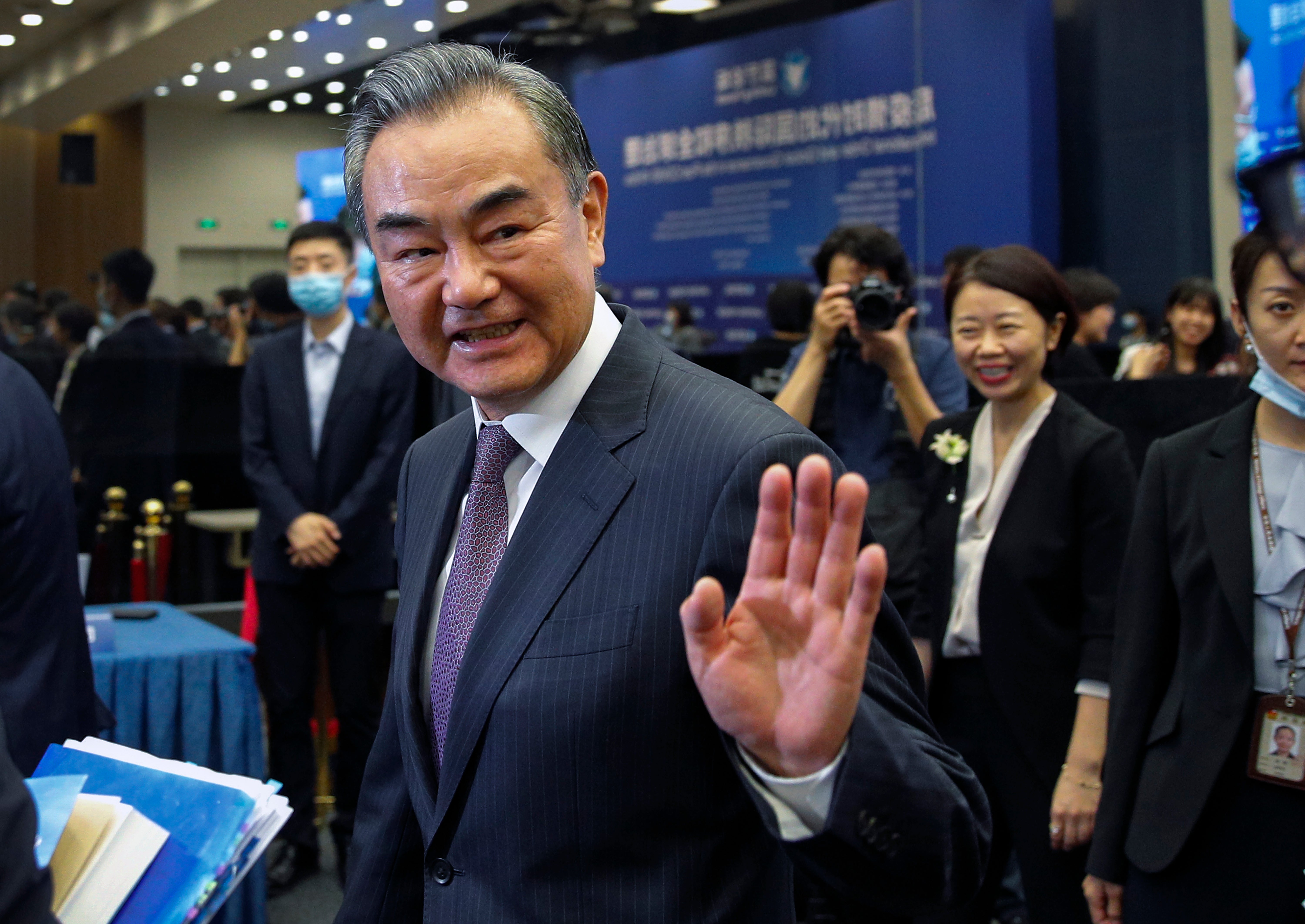China FM calls US Indo-Pacific strategy a huge security risk
China's foreign minister says the United States poses a “huge security risk” to Asia by pushing to boost engagement with the region

Your support helps us to tell the story
From reproductive rights to climate change to Big Tech, The Independent is on the ground when the story is developing. Whether it's investigating the financials of Elon Musk's pro-Trump PAC or producing our latest documentary, 'The A Word', which shines a light on the American women fighting for reproductive rights, we know how important it is to parse out the facts from the messaging.
At such a critical moment in US history, we need reporters on the ground. Your donation allows us to keep sending journalists to speak to both sides of the story.
The Independent is trusted by Americans across the entire political spectrum. And unlike many other quality news outlets, we choose not to lock Americans out of our reporting and analysis with paywalls. We believe quality journalism should be available to everyone, paid for by those who can afford it.
Your support makes all the difference.The United States poses a “huge security risk” to Asia by pushing to boost engagement with the region, China’s foreign minister said Tuesday during a tour of Southeast Asia where Beijing and Washington are locked in a battle for influence.
Speaking in Malaysia, Wang Yi said the U.S.’s real aim is “to build an Indo-Pacific NATO,” in a strategy he said harkened back to the Cold War.
Washington is trying to “stir up confrontation among different groups and blocs, and stir up geopolitical competition while maintaining the predominance and hegemony system of the U.S. ” Wang said at a joint news conference with his Malaysian counterpart, Hishammuddin Hussein.
“In this sense, this strategy itself is a huge security risk," Wang said.
Wang also urged Southeast Asian nations, which are aiming to draw up a code of conduct with China in the South China Sea, to remove “external disruption” in the disputed waters, but did not elaborate.
Wang's tone is typical of China's increasingly hard-line approach to disputes with Washington as it seeks to capitalize on political divisions within the U.S. and a perceived decline in America’s global influence to advance its own foreign policy aims.
China’s aggressive moves to assert its territorial claims in the South China Sea, through which a third of global shipping passes, have drawn rebuke from the United States and become a flashpoint for a region in which Southeast Asian nations Vietnam, the Philippines, Malaysia and Brunei all have rival claims.
Hishammuddin said the disputes over the South China Sea must be resolved peacefully through regional dialogue.
The U.S. says its Indo-Pacific engagement framework supports sovereignty, transparency, good governance and a rules-based order, among other things.
By using the term “Indo-Pacific,” the U.S. also wants to propagate the idea that the region stretches far beyond China’s backyard and the tiger economies of East Asia to include the Indian Ocean.